Meet the New SOA Faculty, Part 2
The second in a series welcoming new faculty to the School of the Arts.
Read: Meet the New SOA Faculty, Part 1
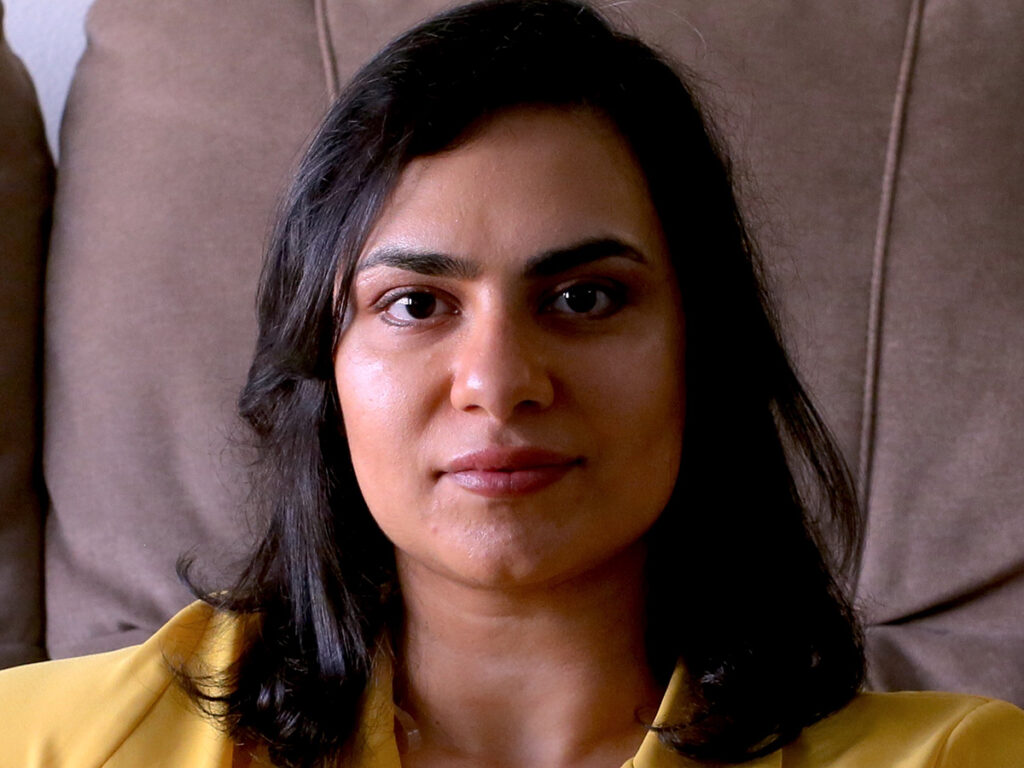
Hanadi Elyan
Assistant Professor, Visual and Media Arts
Will teach: Narrative film directing
Hanadi Elyan is a filmmaker whose work focuses on the social issues facing marginalized communities from a female perspective. Her film career started in Jordan, where she wrote/directed the award-winning short film Mariam’s Choice (2013), before working as a producer of short commercial online content. In 2012, she moved to Dubai to establish Reel Arab Productions, a company that created commercials for international brands and produced TV content for MBC, the biggest Arab broadcaster in the world. Her independent film work has focused on breaking stereotypes, particularly ones associated with Arab women, and has earned her numerous awards, including a spot in the World Economic Forum’s Global Shapers community, recognition from The Producers Guild of America, a Special Jury Award at the Tangiers Film Festival, and the George Burns and Gracie Allen Scholarship Fellowship, among others. She received her MFA in Film Production/Directing from the University of California, Los Angeles.
ET: What do you want your students to learn from your class?
HE: Filmmaking can be a small scene created by a few people or a movie that costs millions of dollars, created by an army of professionals. The artistic aspect of filmmaking is usually personal, while the logistics can be overwhelming. My goal is to prepare students in the first steps, so they may evolve in confidence, craft, and creativity. I want them to be prepared for the complexity of large projects, with excellent fundamentals.
As an educator, I prefer simplifying the process for students, approaching things from a practical perspective. I want to support them in becoming well rounded and having respect and understanding for all key roles in the process.
It isn’t enough that we all love movies. It’s easy to stay a mere movie fan, the spectator that watches and commentates. I want to teach students that filmmaking is a realm they are part of, a space they live in and contribute to, rather than something they see on a screen. I believe this is best achieved by keeping students in a creative mode, continually thinking and working as writers (learning core story structure), as directors (learning to work with actors and articulate a vision to crew), and editing (learning what is needed in production to make the vision a reality in post).
ET: What was the last thing you learned?
HE: I’m new to Boston, so I’ve learnt a lot about the rich history and the importance of the T. My family and I have moved from Los Angeles to Boston through the pandemic; the whole thing has been a huge learning curve, to say the least. Thankfully, we made the trip while staying healthy. I was struck by the beauty of Boston when we drove through the city; I cannot wait to learn more and more about it.
ET: What do you like to do when you’re not working?
HE: My habits have shifted dramatically in 2020, since we only leave the house occasionally — who knew going to the grocery store can be this exciting? But generally speaking, I love to watch movies, cook, play basketball, hike with friends, and of course, spend time with the family.

Kristin Horrigan
Associate Professor, Performing Arts
Will teach: Choreography, improvisation, and dance history and theory
Kristin Horrigan is a choreographer, improviser, scholar, and educator whose work explores the impact dance can have in our communities and the world; how it can be used to question, challenge, and envision; and how we can create invigorating dance practices without reproducing harmful power dynamics. As a choreographer, she works as a community-based artist, drawing together untrained and trained dancers to collaborate around issues of mutual interest or concern. As an improviser, her work focuses on contact improvisation, which she has taught and performed across the U.S., and in Germany, Japan, Argentina, and more. Her current research focuses on the ways that embodied ideas about gender influence our improvisation, along with questions about consent, queerness, and inclusivity. She holds an MFA in Choreography from Ohio State University.
ET: What do you want your students to learn from your class?
KH: In my Perspectives in World Dance class this fall, I want students to leave with a deeper understanding of the many forms dance can take, the many functions dance can serve, the ways dance embodies culture, and the forces that affect the evolution of dances over time. Even more importantly, I want them to leave with the skills to thoughtfully and respectfully engage with dance cultures that are new to them.
ET: What was the last thing you learned?
KH: I started reading a fascinating book last night about the different conceptions of the body found in ancient Greek and ancient Chinese medicine. As an artist who works with the body, and a professor who teaches about human anatomy, it’s important for me to reckon with how something as fundamental as our understanding of our human bodies is culturally conditioned. There are many ways of inhabiting the world, and these understandings inform what we perceive our bodies to be.
ET: What do you like to do when you’re not working?
KH: I love to garden, cook, and spend time in nature. As I write, there’s bread baking in the oven and a pile of tomatoes from the garden “sun-drying” in the dehydrator.
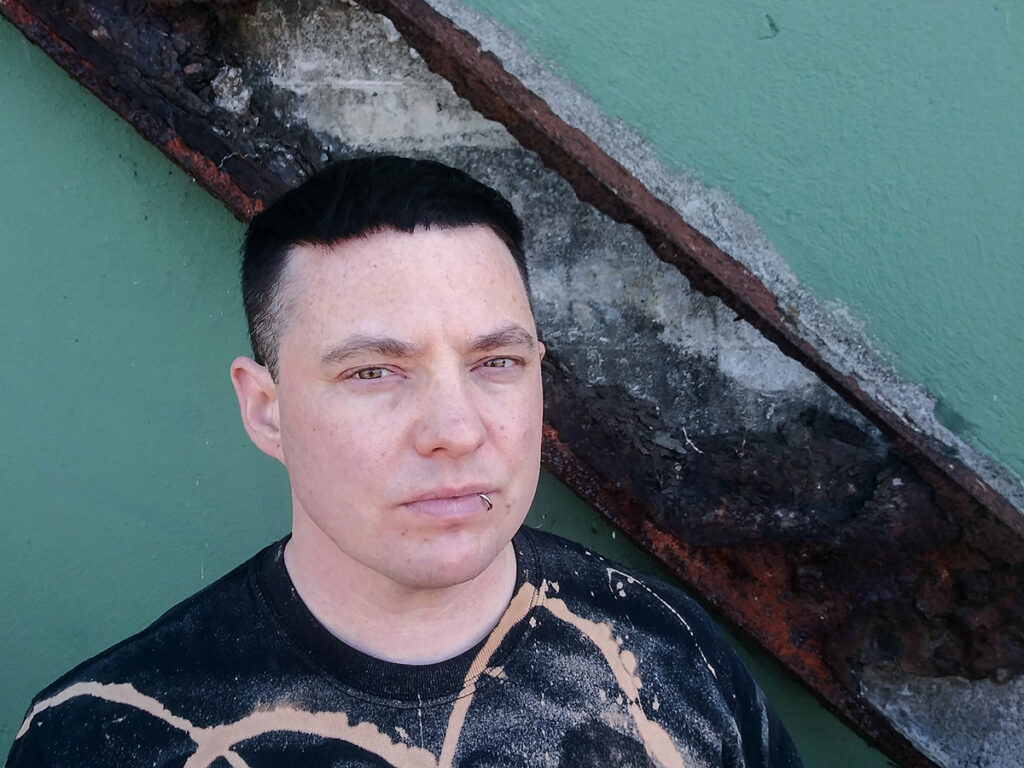
Malic Amalya
Assistant Professor, Visual and Media Arts
Will teach: Experimental film
Bridging avant-garde traditions and the audacious aesthetics of queercore, Malic Amalya’s films attend to the emotional impact of attachment and estrangement, and the corresponding political repercussions of alliances and enmities. His films have been screened at the San Francisco Museum of Modern Art, the Portland Art Museum, and the Museum of Northwest Art, as well as various international festivals. He was most recently an affiliate artist at the Headlands Center for the Arts in Sausalito, California. He also has been an artist-in-residence at Signal Culture, the Vermont Studio Center, and Blue Sky Project. He is the curator of INFARED: New Visions for the Queer Underground, a rotating experimental film program that has travelled across the country. He holds an MFA from the University of Illinois at Chicago, an MA in History and Theory of Contemporary Art from the San Francisco Art Institute, and a BA from Hampshire College.
ET: What do you want your students to learn from your class?
MA: I teach experimental filmmaking from the perspective that movement, light, sound, and text should ricochet off each other, forging new and unforeseen connections. I want students to examine how aesthetic choices serve conceptual frameworks in the films I screen, as well as in their own work.
ET: What was the last thing you learned?
MA: I have been learning about indoor worm composting. The Bay Area, where I just moved from, has city-wide composting, and it has come to feel blasphemous to throw my nutrient-rich food scraps into the landfill where they become toxic sludge. While the worms don’t like citrus, garlic, and onions, they love banana peels, coffee grounds, and kale stems!
ET: What do you like to do when you’re not working?
MA: Send mail art, go dancing, hike, tend to my house plants, discuss correlations between trauma/privilege/relationships/policies, and imagine alternatives to capitalism and the prison industrial complex.

John Rodzvilla
Assistant Professor, Writing, Literature and Publishing
Will teach: Digital publishing for books and the web
John Rodzvilla is an information specialist who has worked with trade publishing houses, small independent publishers, and academic publishers on a variety of digital projects. He has lectured around the world on digital publishing and ebooks, co-founded the New England Publishing Collaboration Awards, and has been a board member of Bookbuilder of Boston for close to a decade. Prior to this position, he had been publisher-in-residence at Emerson for over a decade. While graduate program director for the MA in Publishing and Writing, he developed the 4+1 program for Publishing students and the Digital Content Management Certificate program. He also spearheaded the MFA in Popular Literature and Publishing program, serving as the first program director. Additionally, he helped develop the Business of Creative Enterprises major and co-directed the program. He received an MLIS from Simmons University, and a BA in Literature from Skidmore College.
ET: What do you want your students to learn from your class?
JR: The only way to really learn something is to fail at it repeatedly. You can’t understand how something works until it breaks. It’s the failure that exposes how things operate. A mindset to explore until you fail at something is the best way to learn.
ET: What was the last thing you learned?
JR: I spent the summer reading several of the books that came out about Silicon Valley, and I’ve learned that almost everything these companies do is often part of a marketing plan, and most start-ups want to root out any serendipity. Even Ellen’s Oscar selfie from 2014 was rehearsed ahead of time.
ET: What do you like to do when you’re not working?
JR: What is this “not working” thing you mention? J I like to go for runs, ideally 5 miles, at some point in the day to clear my head.
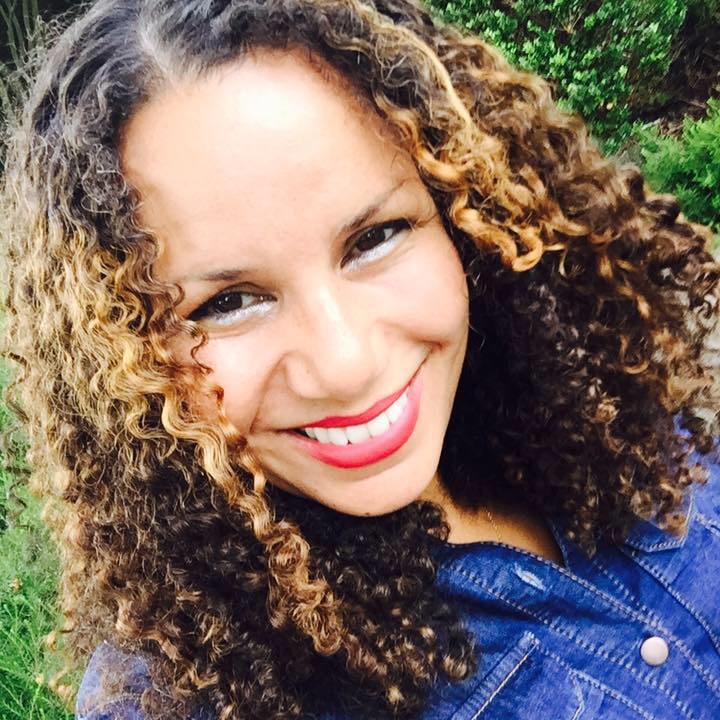
Kyanna Sutton
Assistant Professor, Writing, Literature and Publishing
Will teach: Digital publishing
Kyanna Sutton is a writer, editor, and award-winning multimedia producer. As a multidisciplinary digital content professional, she combines strategic analysis and creativity, deep editorial experience, and a broad skillset to create traffic-building, informative, and immersive online user experiences. For over a decade, she has produced digital content for local public media broadcasting station WGBH, including television, radio, and interactive digital features, as well as in-depth profiles, social media, station and micro websites, and online video. Her beats have included music, arts and culture, education, Black history, technology, and more. She most recently served as managing editor at Flagship Pioneering, a life sciences venture creation firm in Cambridge, Massachusetts, prior to which she served as the executive producer at MIT Technology Review. She holds an MFA in Writing and Literature from Bennington College, and a BA in English Literature and Africana Studies from Wellesley College.
ET: What do you want your students to learn from your class?
KS: In my classes, students will build digital publishing literacy as they cultivate multimedia production, editing, and management skills and learn to develop relationships between audience, content, form, and style. I also want my students to practice multidisciplinary collaboration and to interrogate the zeitgeist of digital life and online culture.
ET: What was the last thing you learned?
KS: Three things come to mind:
- Thanks to ITG, I learned how to upload mobile video footage to Panopto.
- Life with a smartphone is better with a PopSocket.
- As much as I love cheese, it will never love me back.
ET: What do you like to do when you’re not working?
KS: Of course, I love spending time with my family. But alone time is important, especially for introverts like me. When I’m not working, I enjoy getting out of my headspace altogether and into my physical body by practicing yoga, running, hiking, or kayaking. As much as I love digital media and multimedia storytelling, I think it’s necessary to take breaks from technology and immerse ourselves in our bodies and in nature.
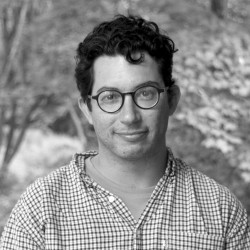
Matan Rubinstein
Associate Professor, Performing Arts
Will teach: Music, audio, and sound performance and studies
Matan Rubinstein is a composer, pianist, electronic musician, and sound designer, active in a variety of contexts and modalities: from concert works for orchestra and chamber groups, to jazz and other forms of improvised music, to acousmatic music from speakers. Many of his works are a result of collaborative efforts, making music for dance, theatre, film, television, art installation, and interactive media. As a pianist, Rubinstein has shared stages, toured, and recorded with people from a wide array of practice and style: from chamber music with violinist Andrew Yang and cellist Paul Cohen, to rhythm and blues with David “Fathead” Newman; from improvising with members of Chicago’s AACM to New York’s Downtown scene. Previously, he taught at Marlboro College and the University of Wisconsin. Originally from Jerusalem, Rubinstein has lived and worked in Brooklyn and Madison, Wisconsin, where he received a doctoral degree in Music Composition from the University of Wisconsin. He currently lives in Western Massachusetts with his wife and three daughters.
ET: What do you want your students to learn from your class?
MR: All sorts of things, but perhaps most importantly, the art of listening attentively.
ET: What was the last thing you learned?
MR: That George Floyd rapped on DJ Screw tracks. DJ Screw did some really interesting work, and I’ve been listening to his music for years, and so I realized I have heard Floyd before I experienced the horror of the last recording of his voice.
ET: What do you like to do when you’re not working?
MR: I have fruit trees – a pear and a couple of apples – in my yard. Lately, I’ve been watching them grow. Must be a sign of the times.
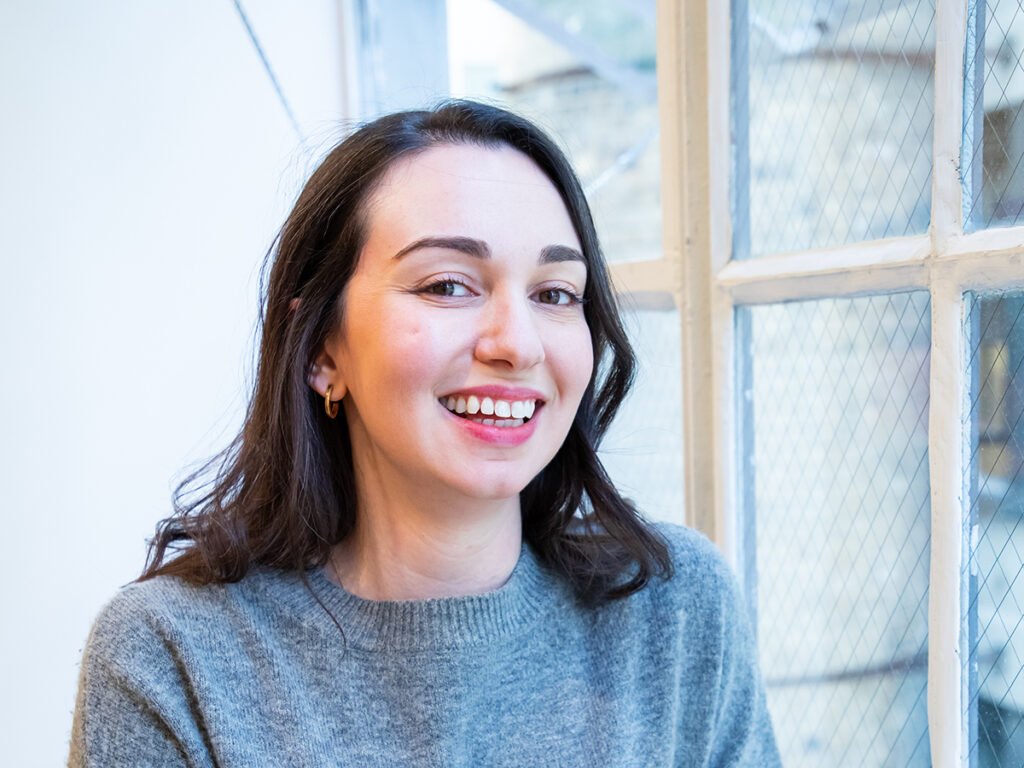
Amy Beecher
Assistant Professor, Visual and Media Arts
Will teach: Visual literacy and aesthetics, drawing, 2D design, and other forms of visual art practice.
Amy Beecher is a visual artist and teacher whose work prioritizes plasticity, color, and framing across multiple mediums. Her teaching reflects her interdisciplinary artistic practice. As an instructor and mentor, she combines rigorous skill development with differentiated, self-directed learning. She is a recent fellow in interdisciplinary art at the MacDowell Colony, where she worked on a project that offered critical revisions of Cathy Guisewite’s Cathy comic series in drawing, text, and sound. A recent exhibition at Providence College, titled tbh, included an interdisciplinary panel on humor, feminist performance art, and self-image. Outside of the studio, she contributes to Big Red Shiny, a Boston-based art criticism website, and Art Handler, a magazine dedicated to labor relations in the art world.
ET: What do you want your students to learn from your class?
AB: I’m teaching a course called Experiments in Digital Painting. We’ll be making plenty of images, but our focus will be on how those images get made more than the final product. Digital painting challenges traditional approaches to craft, source material, site, and distribution. Together, we’ll experiment with all of those facets of making a digital image, seeing what we find inspiring and generative. In all of my classes, we think about how an artist’s approach to making is intertwined with their broader beliefs about the world.
ET: What was the last thing you learned?
AB: I am learning all about GANS (generative adversarial networks) for my Experiments in Digital Painting course. I’m also learning how to be a parent, having welcomed my first child this past spring. The parenting stuff is a lot more complicated than GANS.
ET: What do you like to do when you’re not working?
AB: I love to cook! I think a lot of artists do. Preparing food is a tactile and often improvisational pursuit … it’s almost as fun as making images.
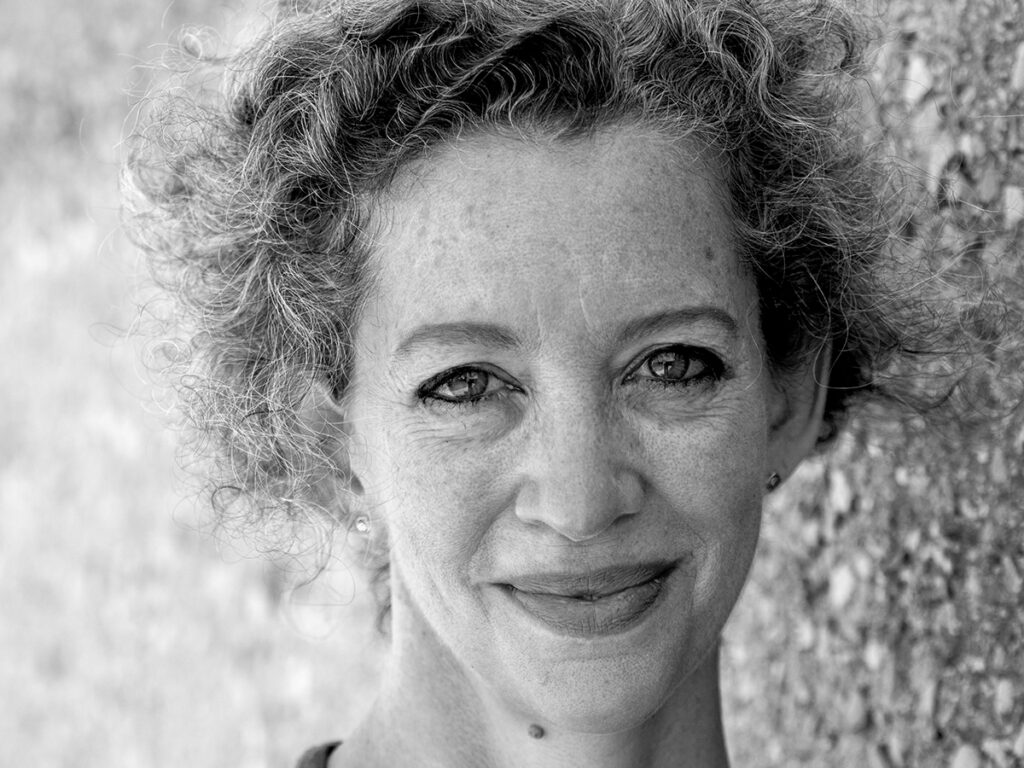
Cassie Tunick
Artist-in-Residence, Performing Arts
Will teach: Movement and Action Theatre
Cass Tunick is a performing artist, writer, and teacher whose embodied artworks provoke an interdependency between physicality, language, imagination, and immediacy. Rooted in Action Theater Improvisation, her physical theatre practice draws on a composite of Eastern philosophies, somatics, and compassionate action as a way to address healing in society. For 30 years, she has worked closely with theatre innovator Ruth Zaporah. Her one-woman show, Citizen of Trees, and her more recent project, Totally Other, examine ecology, connective transformation, and the fluidity of identity. Both her solo and collaborative performances have been presented at numerous venues in New York and internationally. She also is co-curator of Moment’s Notice, a multidisciplinary improvisation salon presented through Boston Conservatory. She has been a visiting faculty member at Boston University and Massachusetts College of Art and Design, and has taught at Emerson for the last five years. She received an MFA in Writing and Poetics from Naropa University.
Categories